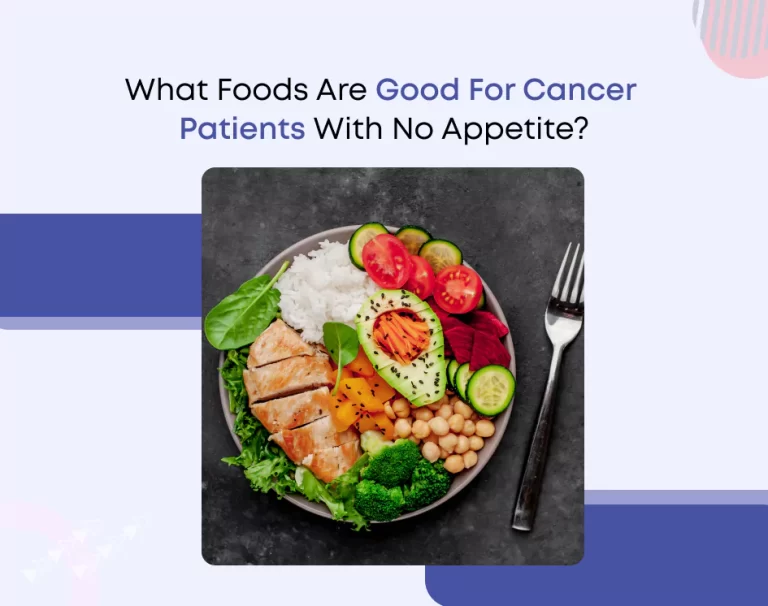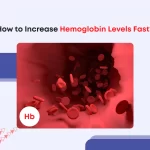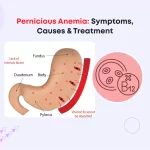
What Foods Are Good For Cancer Patients With No Appetite?
Cancer and its treatments can significantly impact a person’s appetite, often leading to decreased food intake and loss of interest in eating. This can be a challenging issue as proper nutrition is crucial during cancer treatment to support overall health and aid in recovery. Finding foods that are not only nutritious but also appealing to cancer patients with a diminished appetite is essential. In this blog, we will explore various foods and strategies that can help cancer patients maintain adequate nutrition even when their appetite is low.
How Cancer Affects Appetite?
Cancer and its treatments, such as chemotherapy, radiation, and surgery, can cause various side effects that affect appetite:
- Nausea and Vomiting: These are common side effects that can make it difficult for patients to eat.
- Changes in Taste and Smell: Cancer treatments can alter the way food tastes and smells, making previously enjoyable foods unappealing.
- Fatigue: Cancer-related fatigue can reduce energy levels, affecting a patient’s desire to prepare and eat meals.
- Mouth Sores: Some treatments can cause mouth sores or dry mouth, making eating painful or uncomfortable.
- Digestive Issues: Bowel changes or diarrhoea can also impact appetite and nutrient absorption.
These factors underscore the importance of tailored nutritional strategies to support cancer patients in maintaining their health and well-being throughout treatment.
Importance of Nutrition During Cancer Treatment
Proper nutrition plays a critical role in:
- Maintaining Strength and Energy: Adequate nutrition helps combat fatigue and maintain energy levels.
- Supporting Immune Function: A well-nourished body is better equipped to fight infections and support overall immune function.
- Promoting Healing: Nutritious foods aid tissue repair and recovery post-surgery or during treatments.
- Managing Treatment Side Effects: Certain foods can help alleviate side effects like nausea or constipation.
- Improving Quality of Life: Eating well can improve overall well-being and mood during treatment.
These benefits underscore the crucial role of nutrition in supporting cancer patients’ overall health and well-being throughout their treatment journey.
Nutrient-Dense Foods for Cancer Patients
Choosing nutrient-dense foods is essential for cancer patients to maintain strength and support recovery during treatment. These foods provide vital nutrients that can help combat fatigue, support immune function, and aid in healing. Here are nutrient-rich options that are beneficial for patients managing their health through cancer therapy:
Protein-Rich Foods
Proteins are essential for muscle repair, immune function, and overall strength. Here are some protein-rich options:
- Eggs: A flexible protein option that can be cooked in many different ways.
- Dairy Products: Greek yoghurt, cottage cheese, and milk are protein-rich and easier to digest.
- Plant-Based Proteins: Tofu, tempeh, and legumes like beans and lentils provide protein along with fibre.
These foods provide essential amino acids needed for maintaining muscle mass and supporting immune health during cancer treatment.
Healthy Fats
Healthy fats are calorie-dense and can help boost overall caloric intake. Good sources include:
- Avocado: Rich in healthy fats and vitamins.
- Nuts and Seeds: Almonds, walnuts, chia seeds, and flax seeds provide healthy fats and fibre.
- Olive Oil: Use for cooking or as a salad dressing to increase calorie intake.
- Coconut Milk: Adds richness to dishes and provides healthy fats.
- Nut Butter: Peanut butter, almond butter, or sunflower seed butter can be spread on toast or added to smoothies.
Incorporating these fats into meals can help increase energy levels and support nutrient absorption.
Complex Carbohydrates
Carbohydrates are the body’s primary source of energy. Opt for complex carbohydrates such as:
- Whole Grains: Quinoa, oats, brown rice, and whole wheat pasta.
- Legumes: Lentils, chickpeas, and beans are rich in fibre and protein.
- Fruits and Vegetables: Provide vitamins, minerals, and fibre necessary for overall health.
- Sweet Potatoes: High in complex carbohydrates and beta-carotene.
- Whole Grain Bread: Choose varieties with seeds or nuts for added nutrients.
These foods provide sustained energy and help maintain stable blood sugar levels throughout the day.
Strategies to Improve Appetite
Boosting appetite in cancer patients is crucial for maintaining their strength and well-being during treatment. Implementing effective strategies can help overcome challenges and ensure adequate nutrition intake. Here are practical approaches to enhance appetite and support overall health:
Small, Frequent Meals
Eating smaller meals more frequently throughout the day can be less overwhelming and more manageable:
- Offer Nutrient-Dense Snacks: Include snacks like yogurt with fruit, cheese, crackers, or smoothies between meals.
- Focus on High-Calorie Foods: Incorporate calorie-dense options such as nut butter, dried fruits, and granola bars.
- Include Protein with Snacks: Pair snacks with protein to help stabilize blood sugar levels and keep energy levels up.
- Hydrate Between Meals: Drink water or herbal teas to avoid feeling overly full during meals.
- Schedule Eating Times: Plan meals and snacks around times when appetite tends to be better, such as in the morning or after rest periods.
This approach can help patients consume enough calories and nutrients without feeling overwhelmed.
Enhance Flavor and Texture
Address changes in taste and texture preferences to make meals more appealing:
- Experiment with Spices and Herbs: Use seasonings like ginger, garlic, or citrus to enhance flavour.
- Try Different Cooking Methods: Grilling, roasting, or stir-frying can change the texture and flavour of foods.
- Serve Foods at Room Temperature: Hot or cold foods can sometimes be less appealing, and room-temperature foods may be easier to tolerate.
- Include Colorful Foods: Vibrant fruits and vegetables can stimulate appetite visually.
- Offer Variety: Rotate different foods to prevent taste fatigue and maintain interest in eating.
These simple adjustments in flavour and texture can make meals more enjoyable and appealing for cancer patients. Besides, it helps them maintain their appetite and nutritional intake throughout their treatment journey.
Stay Hydrated
Proper hydration is crucial for overall health and can impact appetite:
- Drink Throughout the Day: Encourage sipping water, herbal teas, or diluted juices between meals.
- Include Hydrating Foods: Fruits like watermelon, oranges, and cucumbers have high water content and can contribute to hydration.
- Monitor Fluid Intake: Keep track of how much fluid is consumed daily to ensure adequate hydration.
- Avoid Sugary Drinks: Opt for water or natural fruit juices over sugary sodas or energy drinks.
- Use Flavored Water: Infuse water with fruits or herbs for added flavor without extra calories.
Staying hydrated can also alleviate some common side effects of cancer treatments.
Finishing Up
Maintaining adequate nutrition can be challenging for cancer patients with reduced appetites. However, it is essential for supporting overall health and well-being during treatment. Focus on nutrient-dense foods, incorporate small, frequent meals, and address taste changes. Patients can improve their nutritional intake and better manage side effects by doing these. Seeking advice from a healthcare provider or a registered dietitian can offer personalized guidance and support tailored to specific needs. With the right approach and a variety of options, even cancer patients with low appetite receive the nourishment their bodies need to heal and thrive.








